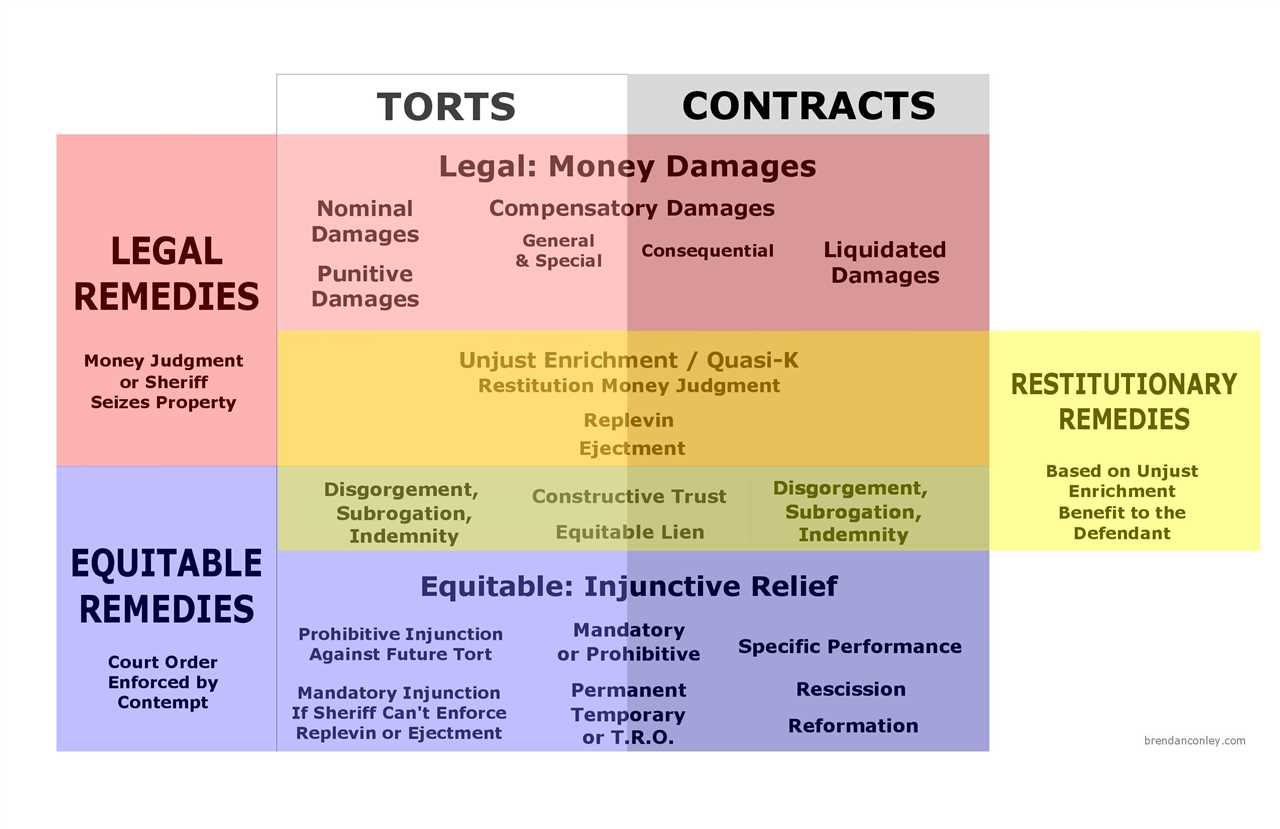Equitable Relief: A Practical Guide
Equitable relief is a legal remedy that aims to provide fairness and justice in cases where monetary compensation alone is not sufficient. It is a form of relief that is granted by a court when there is a violation of a person’s rights and the usual legal remedies are inadequate.
Equitable relief is based on the principles of equity, which is a branch of law that focuses on fairness and justice. It is different from legal relief, which is based on the principles of common law and statutory law. Equitable relief is often sought in cases where there is a breach of contract, fraud, or violation of property rights.
Equitable relief can take various forms, depending on the nature of the violation and the specific circumstances of the case. Some common forms of equitable relief include:
| Form of Equitable Relief | Description |
|---|---|
| Injunction | An injunction is a court order that requires a party to do or refrain from doing a specific action. It is often used to prevent further harm or to preserve the status quo. |
| Specific Performance | Specific performance is a court order that requires a party to fulfill their obligations under a contract. It is often used when monetary damages are not sufficient to compensate for the breach of contract. |
| Rescission | Rescission is a court order that cancels a contract and restores the parties to their pre-contractual positions. It is often used in cases of fraud or misrepresentation. |
| Accounting | Accounting is a court order that requires a party to provide a detailed financial account of their actions. It is often used in cases where there is a breach of fiduciary duty. |
Applying for Equitable Relief

To apply for equitable relief, a party must file a lawsuit and request the specific form of relief they are seeking. The court will then consider the nature of the violation, the evidence presented, and the equities of the case before deciding whether to grant equitable relief.
Equitable relief is a legal remedy that is granted by a court in certain circumstances where monetary damages are not sufficient to provide a fair resolution. It is a form of relief that aims to address the underlying issues and restore fairness and justice.
Equitable relief is often sought in cases where there has been a breach of contract, fraud, or other wrongful conduct. It is typically used when the party seeking relief wants more than just monetary compensation. Equitable relief can take many forms, such as injunctions, specific performance, or rescission.
An injunction is a court order that requires a party to do or refrain from doing a certain action. It is often used to prevent further harm or to preserve the status quo. For example, if a company is using a trademark that belongs to another company, the court may grant an injunction to stop the infringing use.
Specific performance is a remedy that requires a party to fulfill their contractual obligations. It is often used when monetary damages would not adequately compensate the injured party. For example, if a seller refuses to deliver goods as promised, the court may order specific performance to ensure that the buyer receives the goods.
Rescission is a remedy that cancels a contract and restores the parties to their pre-contractual positions. It is often used in cases of fraud or misrepresentation. For example, if a party was induced to enter into a contract based on false information, they may seek rescission to undo the contract.

Emily Bibb simplifies finance through bestselling books and articles, bridging complex concepts for everyday understanding. Engaging audiences via social media, she shares insights for financial success. Active in seminars and philanthropy, Bibb aims to create a more financially informed society, driven by her passion for empowering others.
